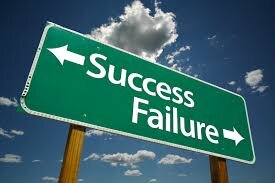
Salary or Draw? How to Pay Yourself as Business Owner
Congratulations! Your small business has moved beyond the initial startup phase and is now a profitable venture. Although you may have worked for free in the early days, it’s time to pay yourself for your efforts.
You generally have two options for taking home a paycheck: a salary and/or a draw based on the structure of your business.
Your Payday
If you are an officer in a corporation, the law says you must be on the payroll and receive regular checks that include withholdings for Social Security, Medicare, federal income taxes, and state income taxes in states that require them.

Borrowing Money to Finance an Education
If you are considering borrowing funds to finance your education or the education of your spouse or children, you may wish to take advantage of the available tax benefits.
If you itemize your deductions and have sufficient equity in your home, you might consider borrowing the needed cash from your home. Generally, homeowners can take $100,000 of equity debt on their home and still deduct interest against the regular tax. Unfortunately, the interest on equity debt is not deductible against the alternative minimum tax (AMT), so consider other alternatives first if you are subject to the AMT. However, even if you are subject to the AMT, your best option may still be taking equity from your home. You may lose the benefit of the interest deduction, but the low interest rate on home loans is still in your favor.

Gambling and Tax Gotchas
Gambling is a recreational activity for many taxpayers, and as one might expect, the government takes a cut if you win and won’t allow you to claim a loss in excess of your winnings. In fact, there are far more tax issues related to gambling than you might expect, and they may be impacting your taxes in more ways than you might believe. So here is a rundown on the many issues, which I like to call “gotchas,” that can affect you.

How an Accounting Pro Can Help Your Small Business Boom
One of the most positive qualities that many small business owners share is a burning desire – an insatiable willingness – to “do it all.” It’s what separates entrepreneurs from employees in the first place. An employee is more than willing to set out on the path that someone else has carved for them. An entrepreneur has a need to carve a path for themselves.

Does Your Employer Misclassify You as an Independent Contractor Instead of as an Employee?
It is not uncommon for employers to misclassify employees as independent contractors, either to intentionally avoid their withholding and tax responsibilities or because they are not aware of the laws regarding the issue. If your employer reports your income on a Form 1099 (as opposed to a W-2), you are being treated as an independent contractor, not as an employee. This can have significant ramifications in terms of how much you have to pay in income, Social Security, and Medicare taxes.

How to Identify When the Time is Right to Bring on an Accounting Pro
Running your own business is a complicated affair with a wide range of different "moving parts" to concern yourself with, but many people don't realize how many of them ultimately lead back to your finances until it's far too late.

Tax Implications of Crowdfunding
Raising money through Internet crowdfunding sites prompts questions about the taxability of the money raised. A number of sites host money-raising projects for fees ranging from 5 to 9%, including GoFundMe, Kickstarter, and Indiegogo. Each site specifies its own charges, limitations, and withdrawal processes. Whether the money raised is taxable depends upon the purpose of the fundraising campaign.

Tax Deductions for Owner-Operator Truckers
As an owner-operator in the trucking industry, your tax situation is unique. You benefit from special allowances for meals, are allowed very large write-offs for tractors and other equipment, must pay additional taxes and permit costs, and may have special reporting requirements in addition to your tax returns. The following is an overview of the tax issues that may apply to owner-operators.

Uber (and Lyft) Drivers Tax Treatment
If you are one of the many individuals in the ridesharing business who is working through services such as Uber or Lyft – or if you are thinking of getting into this business – you may have some questions about the tax issues associated with this fast-growing business model. Generally, these drivers do not work full time, and their driving jobs are supplementary to their primary employment.

Why Do Small Businesses Fail, and How Can I Prevent This?
Many people dream of starting a small business. This is a dream that can become a reality, or—as happens to about 33% of prospective business owners, according to the Small Business Administration – it can result in dismal failure within two years. There’s no magic-bullet solution to ensure a successful business, but if you don’t want to be in that 33%, you should be aware of the common reasons that small businesses fail.

Thinking of Becoming a Real Estate Flipper? Here's a Primer on the Tax Rules
With mortgage interest rates low and home prices finally making a comeback, flipping real estate appears to be on the rise. This activity is even the theme of several popular reality TV shows. House flipping is, essentially, purchasing a house or property, improving it and then selling it (presumably for a profit) in a short period of time. The key is to find a suitable fixer-upper that is priced under market for its location, fix it up and resell it for more than it cost to buy, hold, fix up, and resell.

Thinking of Converting Your Home to a Rental? Better Read this First
If you are considering converting your home to a rental, there are several tax issues you need to consider before making a final decision. One of the first issues to consider is that by converting your main home to a rental, you may be giving up an opportunity to realize tax-free income. Currently, taxpayers can exclude $250,000 ($500,000 for married taxpayers filing jointly) of home gain when they sell a home if they owned and occupied the home as a primary residence two of the five years prior to the sale.

Who Claims the Kids? You or Your Ex-Spouse?
If you are a divorced or separated parent with children, a commonly encountered but often-misunderstood issue is who claims the child or children for tax purposes. This is sometimes a hotly disputed issue between parents; however, tax law includes some very specific but complicated rules about who profits from the child-related tax benefits. At issue are several benefits, including the children’s dependency tax exemption, child tax credit, child care credit, higher-education tuition credit, earned income tax credit, and in some cases even filing status.

Don't Miss Out on Tax Deductions for Homeownership
Whether you already own a home or are considering buying one, you should be aware of the many tax benefits that go along with homeownership. There are plenty of reasons for owning a home, including the potential for capital appreciation and the fact that many of the costs are tax-deductible, while rent is generally not.

Hobbies and Income Tax
Millions of U.S. taxpayers engage in hobbies such as collecting stamps or coins, refurbishing old cars, making crafts, painting, or breeding horses, and the list goes on.
Some hobbies will actually generate income, and some will even evolve into businesses. The tax treatment of hobbies with income is quite different than that of a trade or business, and making the distinction can be rather complicated. The main issue here is that the IRS does not want taxpayers to write off hobby expenses under the guise of trade or business expenses.

How to Decide Between Different Accounting Solutions
Whether you’re just starting out, or you have an established business, you make choices every day for the growth of your business. Each choice affects your success. One decision that is very important, is how you will manage your financial records. There are several key considerations when you make your choice.

Special Edition: Debt Collectors – Know Your Rights
Recently I posted an article from the IRS to our Pricewise Facebook page that stated the names of companies contracting with the IRS for the purpose of collecting on overdue federal tax debts. I stated at that time that I would post a subsequent blog article regarding your rights as a consumer under the Fair Debt Collection Practices Act. Well, here it is.

I’ve got a great idea for a business. How do I get started? Part 2
This is Part Two in our discussion of How to Start a Small Business. In our first installment, we covered business plans, corporate structure, business licenses and permits, Tax ID numbers, and business location. In this installment, we’ll get into the nitty-gritty of operating a business.

I've got a great idea for a business. How do I get started? Part 1
There has never been a greater time in history to start and own a small business. Advancements in technology have made it easier and easier for entrepreneurs to get started with very little startup cost.
So, you have an idea and want to start your own business. First things first, you need to design a business plan. I know that sounds like a huge task, and in some respects, it is.

How To Teach Your Kids About Money
While some parents believe that financial lessons should be taught to their children when they are older, it is never too early to begin instilling sound money habits in your little ones. Children can learn much more easily than most parents realize and you can start teaching them as early as kindergarten.
